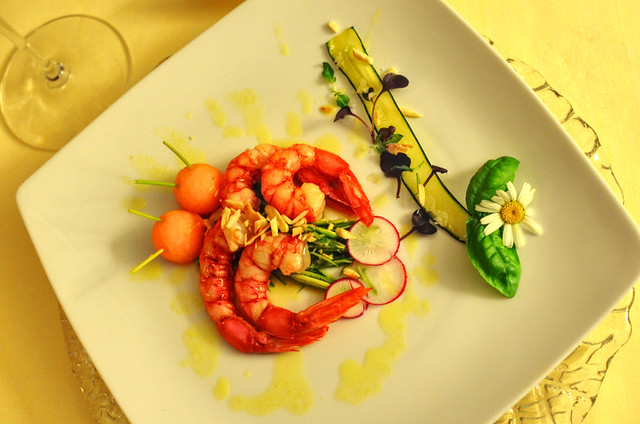Watching Boiling Point starring Stephen Graham, I cringed at the behaviour of the freeloading influencers in the movie. I dislike the term ‘influencer’ and would never use it for anything we do. I’m not a fan of any trendy buzzword; we’re travel writers, end of story. Influencer is a term which is often presented in a negative way in the media, especially when it comes to ones trying to blag free meals from anything from food trucks to prestigious restaurants. And that can result in a detrimental public perception of any form of travel writing and restaurant reviews.
There have been times people have made references to us getting free meals at restaurants in exchange for reviews. Whenever that happens, my hackles spring up. Something we would never ever do is ask a restaurant for a meal in exchange for a review.
It isn’t the way things work … not for us.

Assumptions being made about the media are commonplace, and travel writing is no different. I regularly moan to Andy, ‘why don’t people just ask how it works?’
But mostly, they don’t.
So, I’m going to lay out clearly how it works. Transparency is especially important in an age when social media is awash with false news and uninformed opinions presented as facts.
The Truth about Travel writing and restaurant reviews
Do travel writers get free meals in restaurants?
The short answer to that is yes, of course they do otherwise nobody but the very well-off could ever afford to be travel writers. But the way it works is nothing like as crass as selling reviews for free meals. It’s more of an exchange of goods and services. Here are some examples from our experience.

Press & blog trips: Tourist boards want to promote their destinations. Travel writers want fresh material to write about, so it’s a win-win situation. Press trips come in various formats; some involve hosting a group of writers/bloggers, others are more individualistic. These trips invariably include complimentary visits to restaurants the destination wants to promote. Participating restaurants know they’re going to get a mention in travel articles, so it’s worth it to them to be involved. Sometimes all meals are included on these trips, on others it’s only a selection. There’s no obligation to write positive reviews but the truth is, it is difficult to write something negative about an experience that you haven’t paid for. For that reason, among others, we don’t tend to do press trips these days.
Specific commissions: Businesses want to be mentioned in travel articles which are going to be seen by lots of people, so it simply makes good business sense for them to not charge travel writers who are working on a commission. When Andy was reviewing hotels in the Canary Islands on behalf of The Telegraph, complimentary stays were mostly arranged by individual island’s tourist boards, and these included meals in hotel restaurants. Tourist boards, or PR companies acting on their behalf, usually pave the way for visiting travel writers. These are basically straightforward business arrangements like any other.

Do travel writers approach restaurants and ask for a meal in exchange for writing about them?
I don’t know. I have read and heard plenty of reports of some bloggers and amateur reviewers for UGC (user generated content) sites like TripAdvisor doing this, but I’ve never been aware of professional writers doing it. I know for a fact it’s something we have never done. On occasion, restaurant owners have contacted us and asked if we’d like to dine at their restaurants. If it’s a place we would have wanted to eat at anyway, we’ve accepted.
Sometimes we’ve ended up not paying for a meal when we expected to, but it hasn’t been by design. At a Michelin star restaurant on Tenerife, where we know and get on well with the chef, we booked a table without informing him because we specifically wanted to pay. Ironically, it felt deceitful. Our plan didn’t work as he spotted us anyway and refused to take any payment.
We recently returned from a trip to Jersey. We never mentioned anywhere that we were travel writers. Although it was a holiday, we’ll write about our experiences whenever the opportunity arises; in less than two weeks, an article has already been posted on this site, and a couple of restaurant recommendations added to a Slow Travel guide for Jersey.

Paying but not paying
The bottom line is we prefer to dine in restaurants like any other paying customer. In my view, it is the only way to have a truly authentic experience. And it is a completely different vibe. I can’t speak for other travel writers, but I tend to feel slightly beholden to anyone who’s feeding me for no payment (even though there is payment in the form of promotional words). That unease is probably down to my working-class upbringing and an inbuilt desire to ‘pay my own way.’ But it’s not an ideal quality to have in a profession that doesn’t pay a lot yet involves dining in top restaurants and staying in luxurious hotels. Luckily, part of our job means we can have the best of both worlds.

As Slow Travel consultants working with Inntravel, we regularly help put together holidays for them. When we’re ‘in the field’ we have to eat and also find restaurants to recommend in destination guides for their customers. These are work expenses, so we’re reimbursed. Mostly restaurants have no idea why we’re there, so we get treated the same as everyone else, which suits us right down to the ground.
It’s the perfect arrangement.
The rest of the time, which involves eating out a lot because, well, it’s become a way of life, we pay like everyone else.




Be the first to comment